In the world of modern agriculture, pest resistance is proving to be a game-changer. With the ability to withstand the onslaught of pests, crops are thriving and yields are skyrocketing. This article explores the numerous advantages of pest resistance in agriculture, from reducing the reliance on harmful pesticides to increasing the overall productivity of farms. By harnessing the power of pest resistance, farmers are not only protecting their crops but also ensuring a sustainable and profitable future for agriculture.
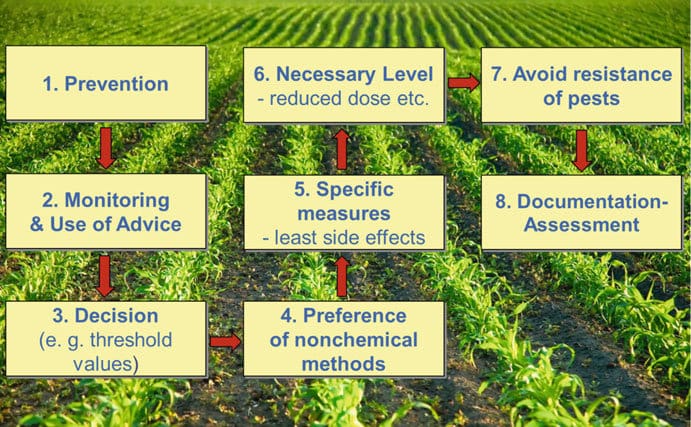
Increased Crop Yield
Decreased crop loss
Pest resistance in modern agriculture brings about increased crop yield by reducing crop loss. Pests, such as insects, fungi, and weeds, have the potential to cause significant damage to crops, resulting in decreased productivity. However, with the use of pest-resistant crops, the risk of crop loss is minimized. These crops are genetically engineered to possess traits that make them less susceptible to pests, allowing farmers to achieve higher crop yields and ensure a stable food supply.
Higher production capacity
Another advantage of pest resistance in modern agriculture is the ability to achieve higher production capacity. By using pest-resistant crops, farmers can effectively manage the impact of pests on their crops and maximize their production potential. With reduced pest damage, farmers are able to cultivate larger quantities of crops, meeting the growing demand for food. This increased production capacity not only benefits the farmers themselves but also contributes to the overall food security of a region or country.
Reduced Dependency on Pesticides
Lower costs
Pest resistance in modern agriculture offers the advantage of lower costs associated with pesticide use. In traditional farming, pest control often involves the frequent application of chemical pesticides, which can be expensive to purchase and apply. However, with the use of pest-resistant crops, the need for extensive pesticide use is significantly reduced. Farmers can save money on pesticide purchases and reduce labor costs associated with the application of these chemicals. This cost reduction allows farmers to allocate their resources more efficiently and focus on other aspects of farm management.
Environmental benefits
Reducing the dependency on pesticides through pest resistance has significant environmental benefits. Traditional pesticide use has been associated with adverse effects on the environment and ecosystems. Pesticides can contaminate soil, water sources, and air, thereby affecting the health of other organisms and contributing to pollution. By embracing pest-resistant crops, farmers can minimize pesticide use and decrease the environmental impact associated with it. This promotes ecological balance, preserves biodiversity, and supports sustainable agricultural practices.
Enhanced Food Safety
Decreased pesticide residue
Pest resistance in modern agriculture contributes to enhanced food safety by reducing pesticide residue. Pesticides used in traditional farming can leave residues on crops, and prolonged exposure to these residues can pose health risks to consumers. However, with the use of pest-resistant crops, the need for pesticide application is significantly reduced, resulting in decreased pesticide residue. This ensures that the produce is safer for consumption and reduces potential health risks associated with pesticide exposure.
Reduced health risks
By reducing the reliance on pesticides, pest resistance in modern agriculture also helps to lower health risks. Farmers who frequently handle and apply pesticides are at a higher risk of experiencing negative health effects. Prolonged exposure to these chemicals can lead to respiratory problems, skin irritations, and other health issues. By adopting pest-resistant crops, farmers can minimize their exposure to pesticides, protecting their health and improving their overall well-being. Additionally, consumers benefit from reduced health risks by consuming crops that are grown with minimal pesticide use.
Improved Pest Management
Integrated Pest Management (IPM)
The use of pest-resistant crops enables farmers to adopt integrated pest management (IPM) strategies, which is another advantage of pest resistance in modern agriculture. IPM utilizes a combination of biological, cultural, physical, and chemical control measures to manage pests effectively. By incorporating pest-resistant crops into their farming practices, farmers can integrate other pest control methods to create a comprehensive and sustainable pest management system. This approach reduces the reliance on chemical pesticides and promotes the use of natural and eco-friendly pest control alternatives.
Long-term sustainability
Pest resistance in modern agriculture contributes to long-term sustainability by promoting sustainable pest management practices. Traditional pest control methods often require intensive pesticide use, which can result in pest resistance and the need for stronger chemicals. This cycle is not only detrimental to the environment but also economically unsustainable. By using pest-resistant crops, farmers can break this cycle by minimizing pesticide use, preserving the effectiveness of existing chemicals, and promoting a more environmentally friendly approach to pest management. This ensures the long-term viability of agricultural practices and protects the future of farming.
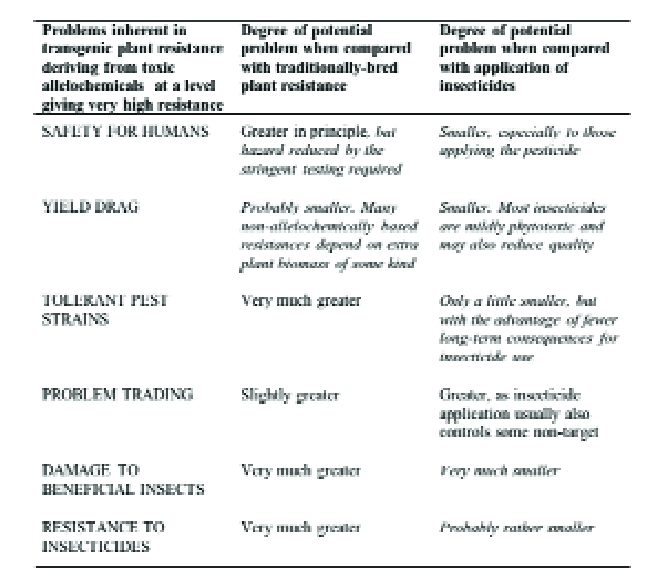
Resistance to Multiple Pests
Comprehensive pest control
One of the advantages of pest resistance in modern agriculture is the resistance to multiple pests. Traditional farming methods often require the use of specific pesticides to target individual pests. However, pest-resistant crops are designed to possess traits that provide resistance to a broad range of pests. This comprehensive pest control eliminates the need for multiple treatments and simplifies pest management for farmers. By using pest-resistant crops, farmers can address multiple pest threats simultaneously, saving time, effort, and resources.
Reduced need for multiple treatments
The development of pest-resistant crops reduces the need for multiple treatments to control pests. Traditional farming practices often involve repeated pesticide applications to combat different pests throughout the growing season. However, pest-resistant crops tackle multiple pests simultaneously, reducing the necessity for multiple treatments. This streamlined approach to pest control saves farmers time and money, allowing them to focus on other farming activities and improving overall efficiency.
Crop Diversity and Security
Protection against emerging pests
Pest resistance in modern agriculture offers protection against emerging pests, maintaining crop diversity and security. As pests evolve and adapt, new threats can emerge, posing a risk to crops and agricultural productivity. By planting pest-resistant crops, farmers can safeguard their crops against these emerging pests. These crops are designed to withstand various pest pressures, ensuring the continued diversity and security of crop production. This protection allows farmers to adapt to changing pest dynamics while maintaining a stable food supply.
Preservation of biodiversity
By utilizing pest-resistant crops, modern agriculture promotes the preservation of biodiversity. Traditional pest control methods often involve the extensive use of chemical pesticides, which can have detrimental effects on beneficial insects and organisms. These chemicals can disrupt ecosystems and harm biodiversity by affecting the natural balance of organisms in the environment. In contrast, pest-resistant crops minimize the use of chemical pesticides, allowing for the preservation of beneficial insects and the overall biodiversity of agricultural landscapes. This contributes to sustainable farming practices and protects the delicate balance of ecosystems.
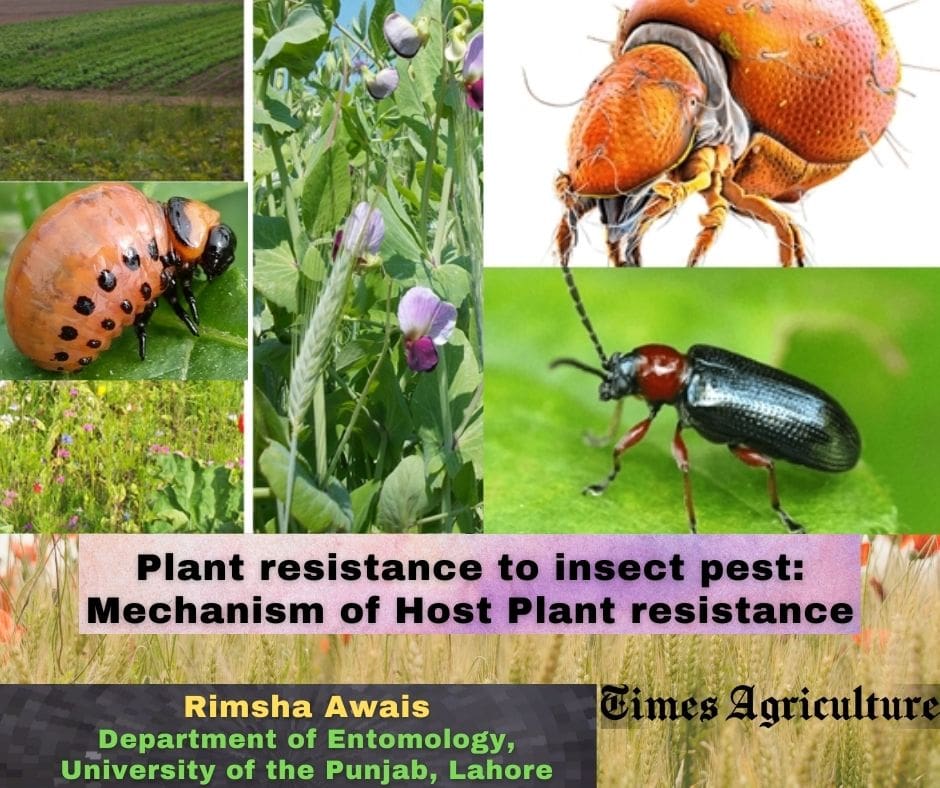
Economic Benefits
Increased profitability
Pest resistance in modern agriculture brings economic benefits through increased profitability. By utilizing pest-resistant crops, farmers can achieve higher crop yields and reduce losses due to pests. This improved productivity directly translates to increased profitability for farmers. With higher yields and reduced crop loss, farmers can bring more products to market, generating higher revenues. This increased profitability allows farmers to invest in their farms, expand their operations, and improve their overall financial stability.
Stable food prices
Another advantage of pest resistance in modern agriculture is the stabilization of food prices. By minimizing crop losses caused by pests, the supply of agricultural products becomes more consistent and reliable. This stability in supply helps prevent significant price fluctuations in the market. Stable food prices benefit both farmers and consumers, providing farmers with a steady income and ensuring that consumers have access to affordable and reliable food sources. This contributes to a more balanced and sustainable agricultural market.
Enhanced Farmer Livelihood
Decreased financial risks
Pest resistance in modern agriculture offers enhanced farmer livelihood by decreasing financial risks. Pest damage can have severe economic consequences for farmers, leading to significant financial losses. By adopting pest-resistant crops, farmers can mitigate these risks by minimizing crop losses and increasing productivity. With reduced financial risks, farmers can be more confident in their farming ventures, making long-term investments and planning for the future. This increased financial stability contributes to improved livelihoods for farmers and their families.
Improved quality of life
Embracing pest resistance in modern agriculture also leads to an improved quality of life for farmers. The reduced reliance on pesticides and the associated risks and hazards contribute to a safer and healthier farming environment. Farmers who adopt pest-resistant crops can reduce their exposure to harmful chemicals, improving their overall well-being. Furthermore, the increased profitability and stability achieved through pest resistance allow farmers to enjoy a better standard of living. They can access better healthcare, education, and other essential services, leading to an improved quality of life for themselves and their families.
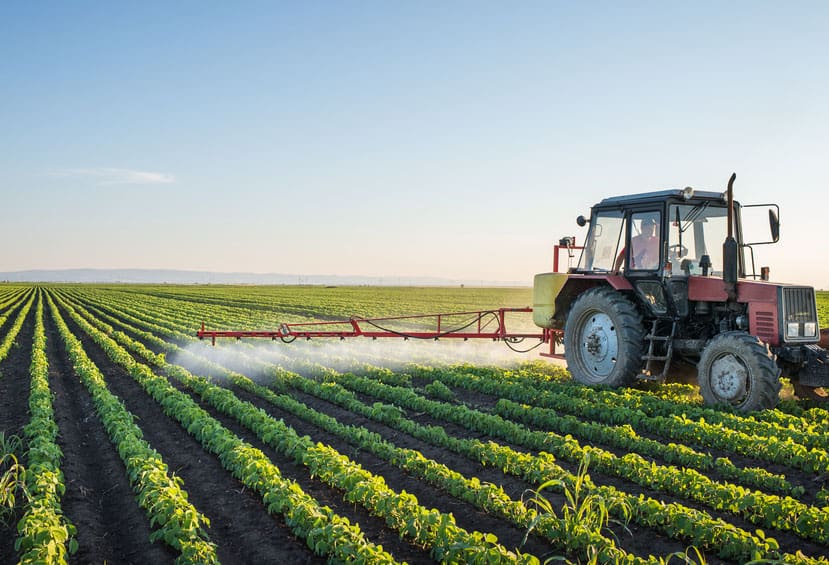
Reduced Production Losses
Minimized crop damage
One of the advantages of pest resistance in modern agriculture is minimized crop damage. Pest infestations can cause significant damage to crops, resulting in lower yields and financial losses for farmers. However, with the use of pest-resistant crops, farmers can effectively manage and minimize crop damage caused by pests. These crops possess genetic traits that provide resistance against pests, reducing the vulnerability of crops and ensuring healthier and more productive harvests.
Less post-harvest losses
Pest resistance in modern agriculture also contributes to less post-harvest losses. Post-harvest losses occur when crops are damaged or lost during the storage, packaging, or transportation process. Pests can contribute to significant post-harvest losses by contaminating and damaging crops. By utilizing pest-resistant crops, farmers can minimize pests’ impact on crops, reducing post-harvest losses and ensuring that more of the harvested produce reaches consumers. This leads to increased efficiency in the agricultural supply chain and reduces food waste.
Improved Farmer-Customer Relationships
Productivity and reliability
Pest resistance in modern agriculture improves farmer-customer relationships through increased productivity and reliability. By utilizing pest-resistant crops, farmers can achieve higher crop yields and provide a consistent supply of agricultural products to their customers. This improved productivity and reliability result in satisfied customers who can rely on a steady and predictable source of high-quality produce. By consistently meeting customer demands, farmers can establish strong relationships with their customers, promoting customer loyalty and supporting long-term business success.
Customer satisfaction
Embracing pest resistance in modern agriculture also leads to enhanced customer satisfaction. Pest-resistant crops are grown with minimal pesticide use, resulting in produce that is healthier, safer, and of higher quality. Customers are increasingly conscious of the impact of pesticides on their health and the environment. By offering pesticide-resistant crops, farmers can meet the growing demand for safe and sustainable food options. This commitment to customer satisfaction not only ensures consumer loyalty but also contributes to a positive reputation for the farming industry as a whole.
In conclusion, the advantages of pest resistance in modern agriculture are numerous and far-reaching. From increased crop yield and reduced dependence on pesticides to enhanced food safety and improved pest management, pest resistance brings numerous benefits to farmers, consumers, and the environment. Additionally, the economic benefits, improved farmer livelihood, reduced production losses, and improved farmer-customer relationships further highlight the importance of embracing pest resistance. By adopting pest-resistant crops and implementing sustainable pest management practices, farmers can maximize productivity, ensure food security, and contribute to the overall well-being of individuals, communities, and the planet.
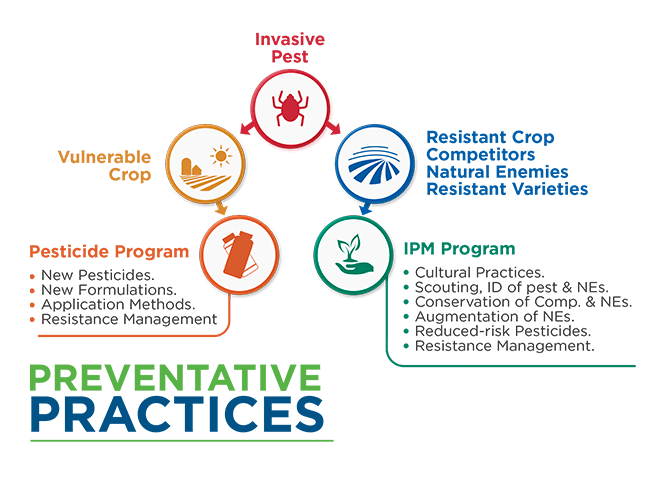

I am Randy, the author behind PestControld.com. Drawing from decades of experience, I aim to provide valuable insights, expert advice, and practical recommendations to help you make informed decisions when assessing viable pest control solutions.